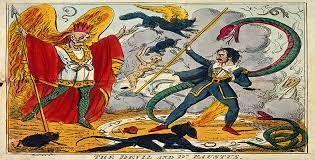Tag Archives: religious faith
Dante the Pilgrim and Doctor Faustus – 2022 Best

Comparison discussion between literature works (Dante the Pilgrim and Doctor Faustus). Paper details Be sure to use specific quotations, incidents, images, or scenes to illustrate your points. Your in-text citations should use act numbers, scene numbers, and line numbers for play
Dante the Pilgrim and Doctor Faustus
Paper details Be sure to use specific quotations, incidents, images, or scenes to illustrate your points. Your in-text citations should use act numbers, scene numbers, and line numbers for plays; canto and line numbers for Dante; and/or page numbers for other works. (You do not need to include a Work Cited list.) 1. Do both Dante the Pilgrim and Doctor Faustus demonstrate that they have the capacity to repent? Discuss the experience of Dante the Pilgrim in one canto of Inferno by Dante Alighieri (including one direct quotation) and the experience of Faustus in one scene from Doctor Faustus by Christopher Marlowe (including one direct quotation) to support your answer.
Dante the Pilgrim and Doctor Faustus
(Maximum 3 paragraphs or 600 words) 3. Both Rumi, as a Sufi poet, and Voltaire, as a French satirist and philosopher, expressed non-traditional visions of spiritual life and religious faith. Using at least one direct quotation, discuss one stanza of Rumi’s poem “Who Am I?” in terms of the Sufi beliefs it reflects. Then, using at least one direct quotation, discuss Candide’s experiences with religion in Chapter XVIII (18) of Voltaire’s Candide. In your opinion, what ideals about religion and/or spirituality do both writers share in common? (Maximum 4 paragraphs or 750 words Use only mentioned works, no research needed. https://youtu.be/YbCEWSip9pQ
Additional Files
Best Catholic Intellectual Tradition Essay – 2022.

Best Catholic Intellectual Tradition – Christianity and Culture.
Best Catholic Intellectual Tradition – Christianity and Culture.
The Catholic Intellectual Tradition. Paper details ESSAY: In a well-organized essay, provide a critical response to ONLY ONE of the following statements: EACH STATEMENT EXPRESSES a position from the Catholic Intellectual Tradition. Informed by the texts you have encountered in this class and your understanding of the dialogue between Christianity and Culture, SELECT ONE TO WHICH YOU WILL RESPOND. YOU MAY AGREE, DISAGREE, OR OFFER A POSITION SOMEWHERE IN BETWEEN THE STATEMENT AND WHAT MIGHT BE CONSIDERED a contrary view. Statement I. Truths about ourselves as human beings and the world we live in are intelligible through religious faith alone. An understanding of these truths begins in religious faith and surpasses whatever we can know through human reason. Statement II.
Best Catholic Intellectual Tradition – Christianity and Culture.
Human persons are created in the image of God, and God created human persons as social beings. It is because God created humans as social beings that we, unlike non-human animals, are capable of sympathy and altruism. Our divinely created purpose, therefore, is to resist egoism and to form social unity, and pursue the common good. Statement III. It is the love of God that arouses the inescapable duty to make ourselves the neighbor of every individual, without exception, whether that neighbor be a foreign worker who suffers the injustice of being despised, a refugee, or a starving human being.
Catholic Intellectual Tradition – Christianity and Culture.
1. Develop your response to one of the above statements using the insights of four sources or readings from the list of readings covered in your specific section of Christianity and Culture in Dialogue. (You can choose any of the readings except the ones by Evagrius, Barbara Ehrenreich, David Brooks, Kate Murphy, Mary Oliver, Thich Nhat Hanh, and Paul Knitter.) You may not refer to/discuss readings that were not covered in your specific section. If you do so, I will assume that you have plagiarized your answer. 2. You do not need to know where the statement comes from in the course readings. All you need to do is to provide your critical response to the selected passage by discussing four-course readings.






